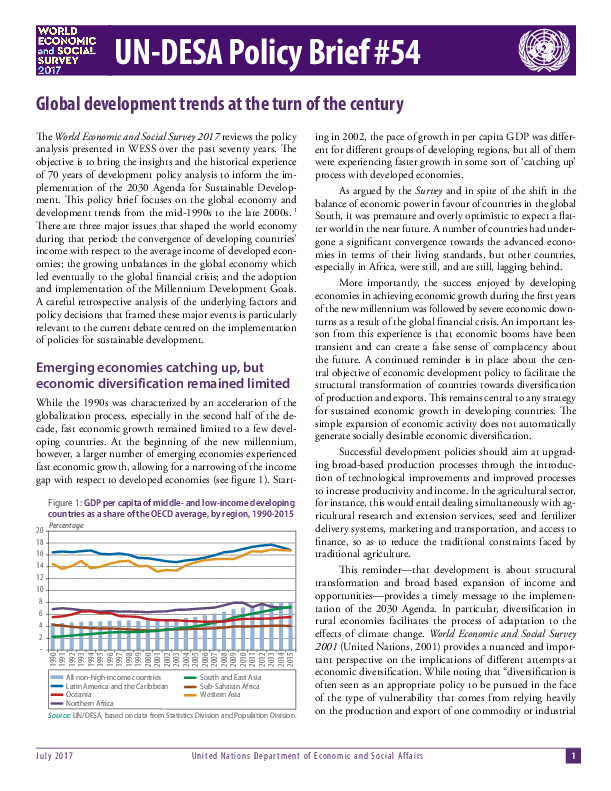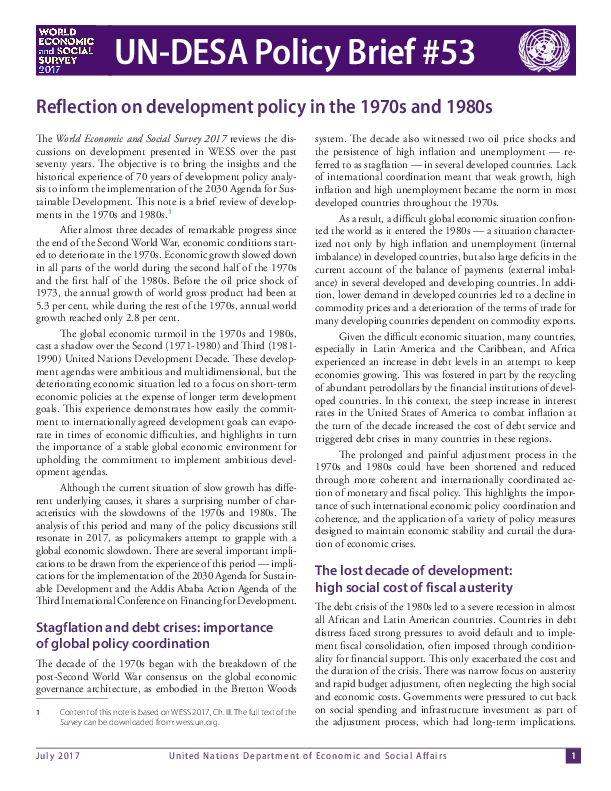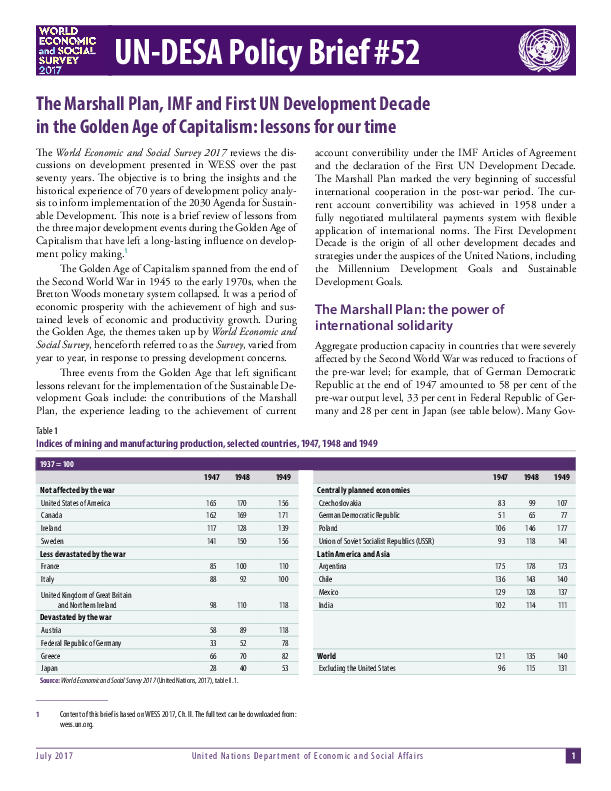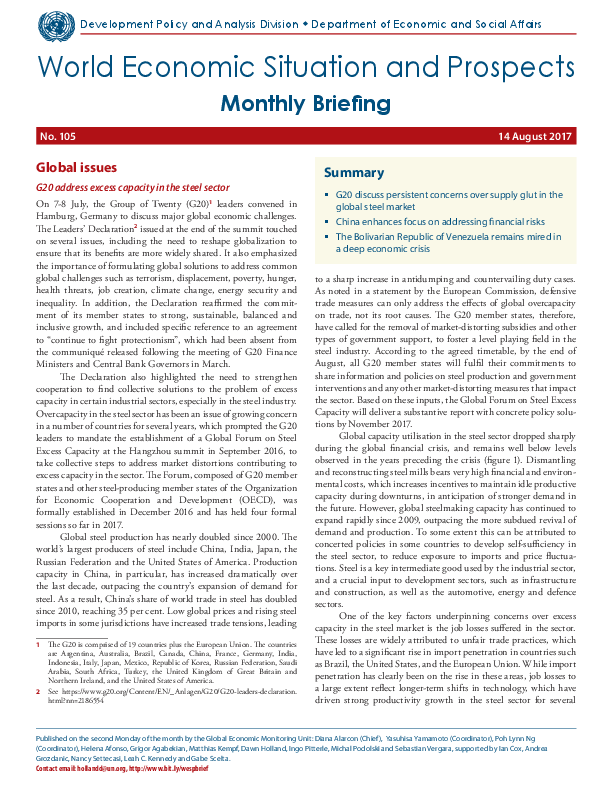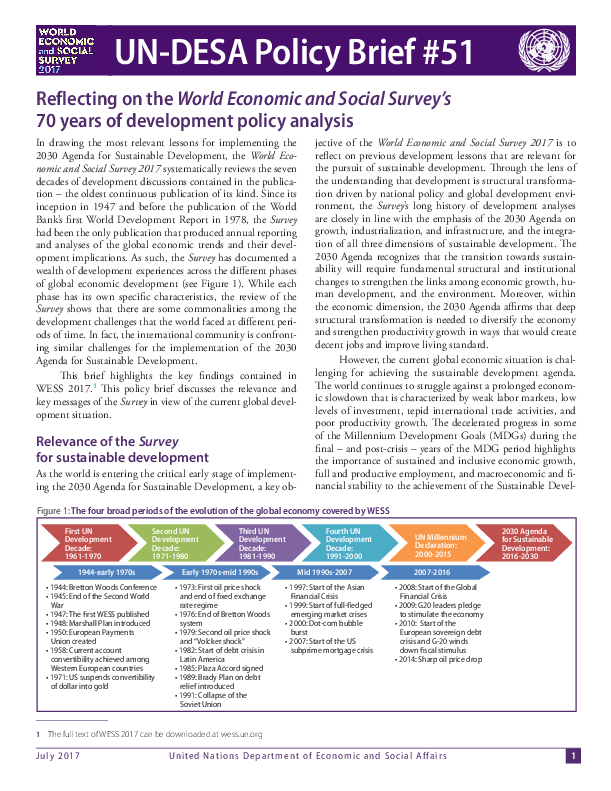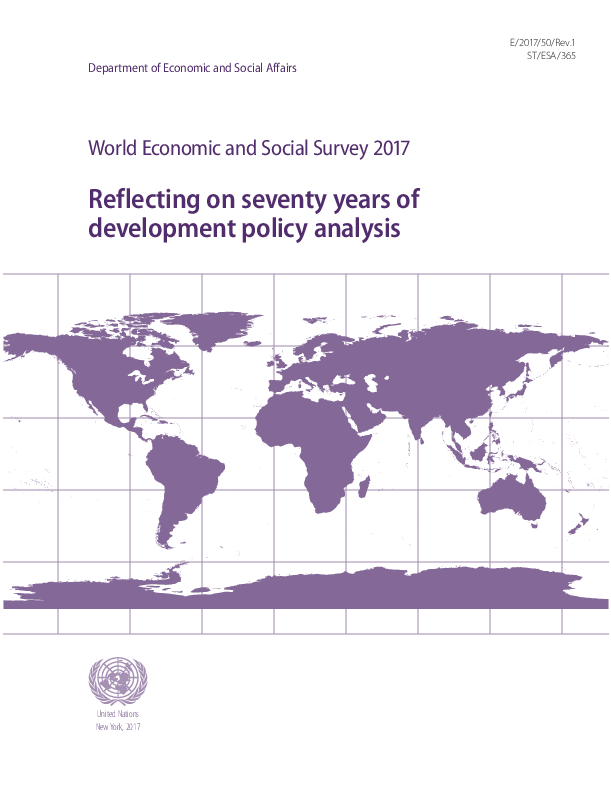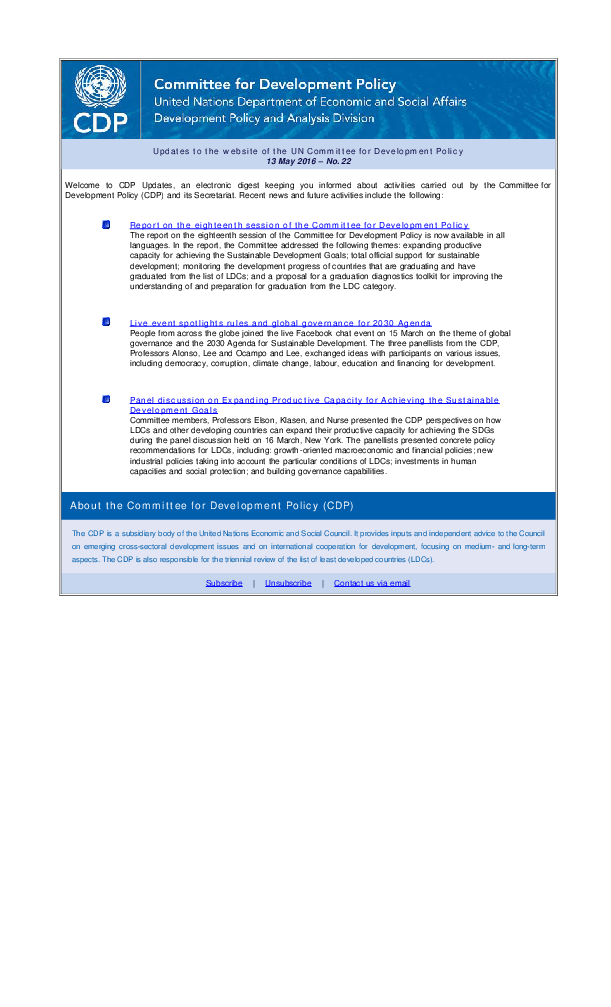Publications
Displaying 411 - 420 of 1087
Diplomatic rift poses economic challenges for Qatar
Fragile and uneven economic recovery in Africa and South America World Economic Situation And Prospects: August 2017 Briefing, No. 105
 Welcome to the United Nations
Welcome to the United Nations
